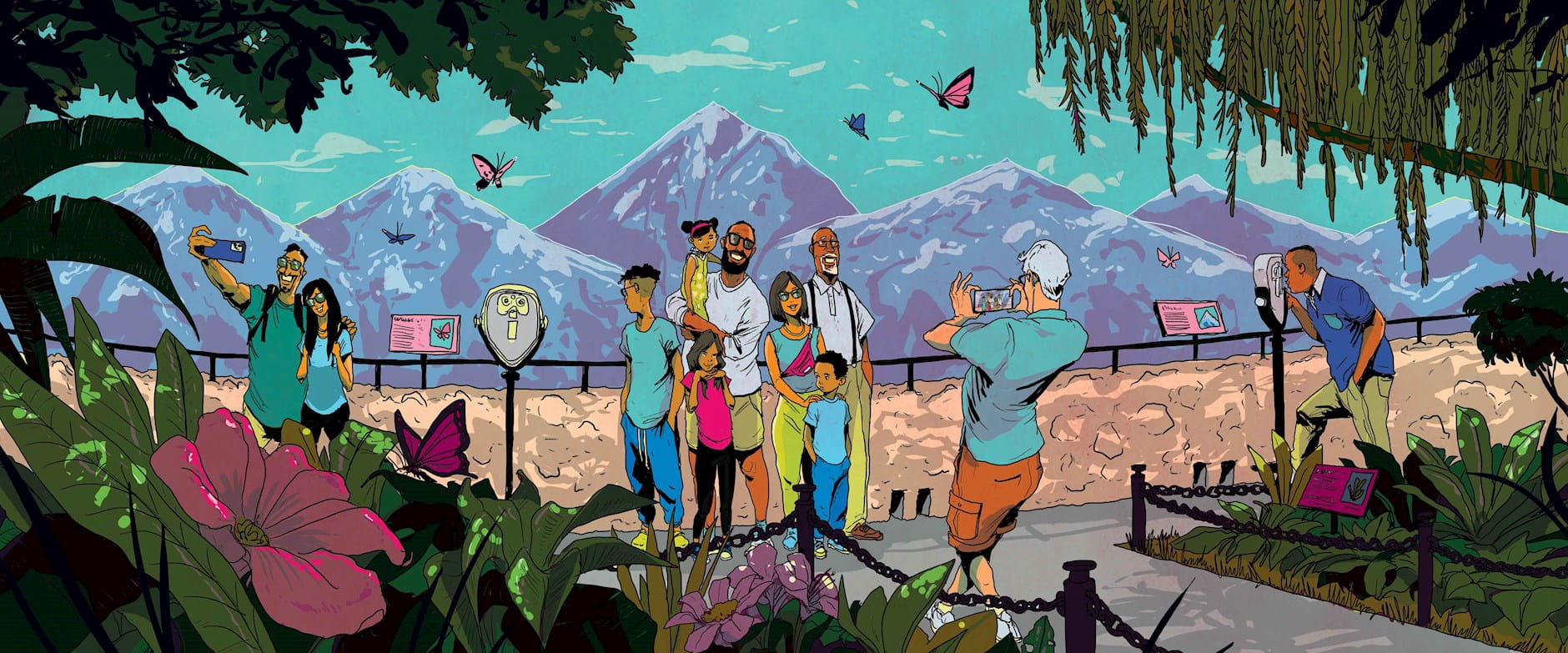Walking in a park one day, Stanford’s Xuan Zhao noticed an elderly couple trying to take a picture of themselves. She heard the husband whisper that they shouldn’t bother a young woman using a laptop on a bench nearby. Noticing their struggle, the woman offered to help. “Really?” the wife asked. “You can help us take a picture?”
It was a common enough interaction, and it mirrored the findings of a study that Zhao conducted with Booth’s Nicholas Epley when she was a postdoctoral scholar at Chicago Booth. The researchers find that people can be consistently reluctant to reach out for assistance because they underestimate how happy others are to comply.
“Often, it is our own preconceived notions that hinder us from reaching out and seeking help, even though people are frequently more than willing to lend a hand when asked,” Zhao says. This reluctance creates a barrier to a social interaction that would increase the well-being for both the requester and the helper, the researchers write.
In six experiments, Epley and Zhao surveyed hundreds of people to gather information about study participants’ expected and actual reactions to either asking for or being asked for help. For example, in their first experiment, Zhao and Epley recruited 50 visitors of a public park and asked them to find someone to take their picture on a Polaroid camera. Participants first filled out a survey that gauged both how they felt about making the request and how they expected the people they approached to feel and react.
In 47 cases, the first person approached agreed to help. In the three others, the first declined but the second person said yes. The researchers then approached the picture takers and surveyed them as well. Participants significantly underestimated the picture takers’ willingness to help and overestimated the discomfort involved, the surveys reveal.
They’re happy to assist
Another experiment tested how willing strangers in a university laboratory were to help each other. Participants were paired up and seated at computer desks close enough that they could see each other but not the other’s computer screen. They were then tasked with, within five minutes, counting the number of instances the letter E appeared in an academic article. One partner was given too much material to cover in that time, while the other was given so little as to have lots of time left over. The overburdened participants were encouraged to ask for help, whether by asking their partners directly or by tapping the experiment instructor to ask on their behalf. As before and in the other experiments, the results indicate that people in need of help tended to underestimate how happy others were to provide it and overestimate the perceived bother involved.
“We believe those asking for help are likely to focus on the inconvenience of helping, as the help required is likely to be their primary focus,” Epley says. “Someone being asked for help, in contrast, will focus on the inconvenience of helping but will also focus on an enhanced sense of agency for being identified as someone who could provide help.” For the person being asked for help, the social connection and positive feelings of performing an act of kindness most likely outweigh the inconvenience, he says.
Zhao and Epley say the findings changed their own behavior. Zhao now proactively offers help, knowing how reluctant others are to ask. She gives the example of a recent vacation to the Muir Woods National Monument, where she offered to take photos for other visitors—even suggesting she use panorama mode to capture the full grandeur of the monument’s old growth redwood trees.
Epley no longer hesitates to reach out for help. “In some ways it’s actually unkind not to ask for help when someone would be quite willing and even happier if you did ask,” he says.
Xuan Zhao and Nicholas Epley, “Surprisingly Happy to Have Helped: Underestimating Prosociality Creates a Misplaced Barrier to Asking for Help,” Psychological Science, October 2022.
Your Privacy
We want to demonstrate our commitment to your privacy. Please review Chicago Booth's privacy notice, which provides information explaining how and why we collect particular information when you visit our website.
